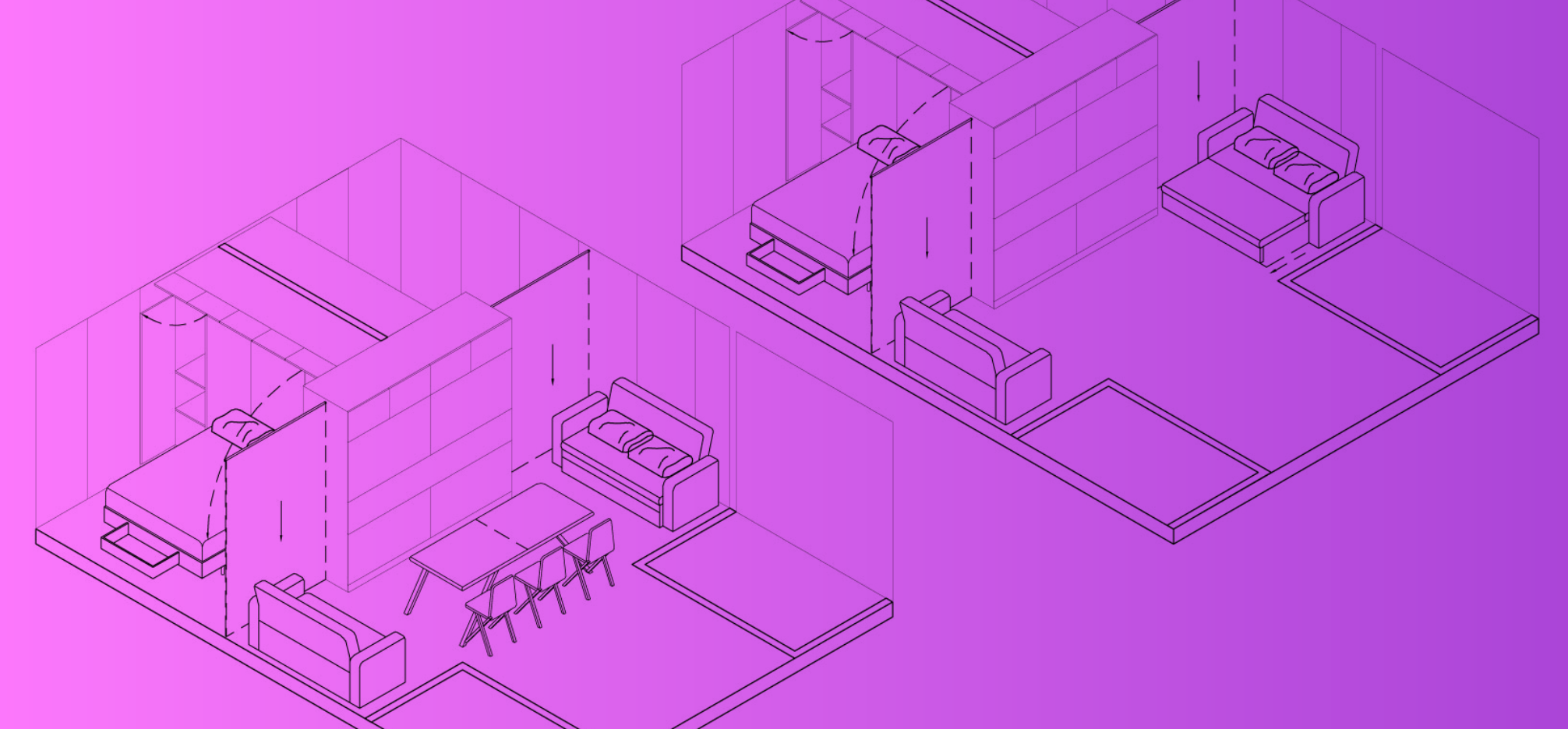
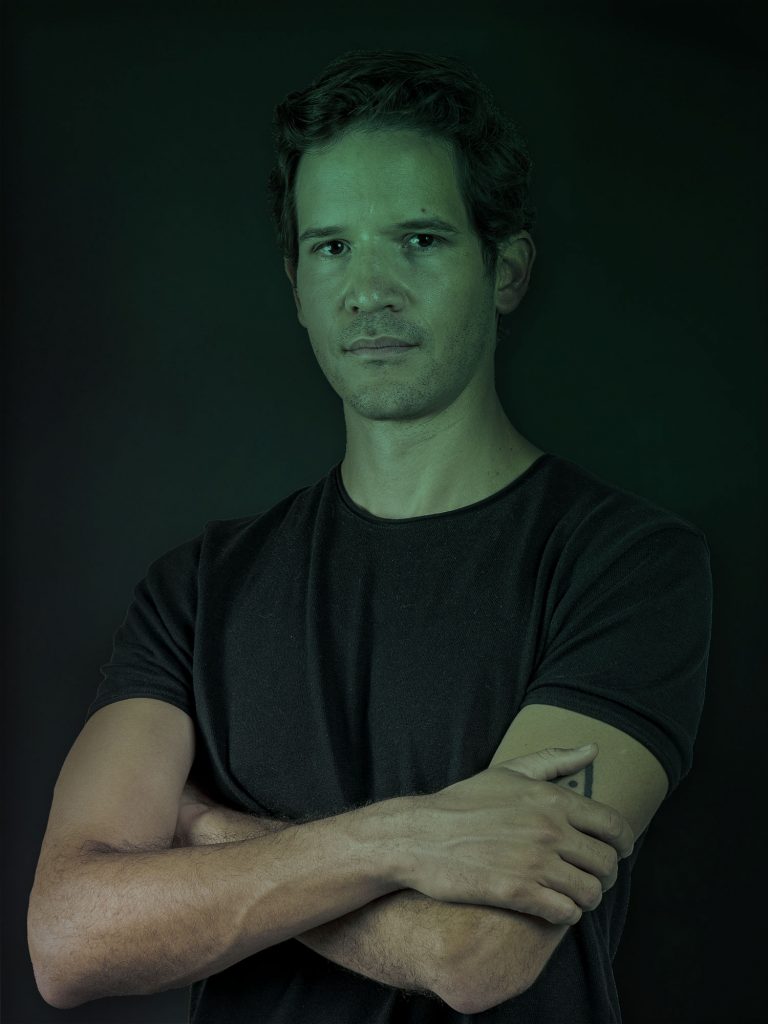


AUTHORS
Leonardo Neve Sánchez Cafeína Design's Director
Jessica Alcántara Rivera Research and BIM coordinator
Aranza Ayala Amador Talent Training Program
Post-pandemic real estate industry
Since the latest global crisis caused by COVID-19 began; isolation, and distance were established strategies to keep us and our loved ones healthy. The routines around our lives changed drastically in a diversity of contexts from the ones related to family, school, and work. The new way of living, and understanding architecture, and the city, gave space to processes of transition that require us to redefine the ways we should be living our lives and spaces from now on.
Many city centers around the globe, in particular the ones with areas characterized by giving rise to corporate and office buildings, were drastically abandoned due to the introduction of remote work, or home office as an important safety measure. Being attendance not essential anymore, work began to be developed from home and more comfortable sites as temporary locations. According to studies of “El Financiero” in Mexico City in 2019, the displacement and abandonment were registered in 1,076,157 square meters of empty offices. By 2021 there was 1,822,545 square meter of empty offices, and therefore an increase of 69.4% unoccupied spaces in the last two years.
Recent studies have shown the home office can be an efficient modality, data from es.statista.com shows that in Mexico during April of 2020, 93% of the surveyed population found effective working from home. Additionally, this modality reported improvements in the quality of life of the people, while 73% of this population said that they saved time and money on unnecessary trips while enjoying amenities and spending more time with their families. In that same poll, 53% said that home office modality increased their responsibility.
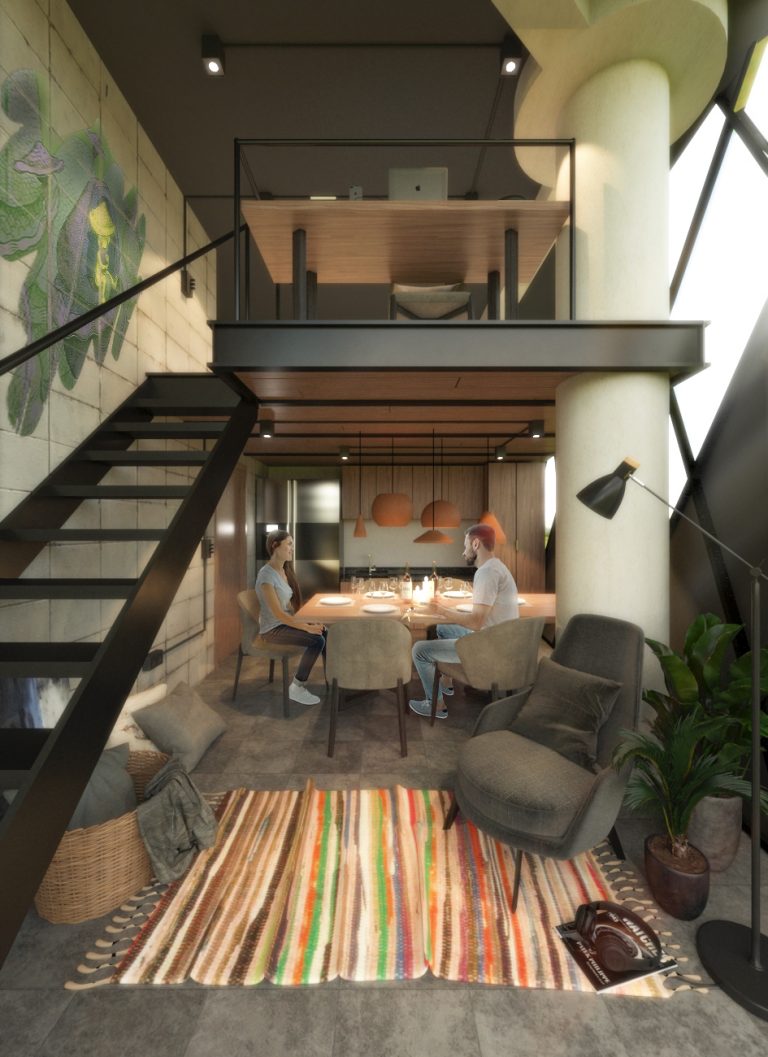
Public opinion and the new demands of collaborators led corporations and multinationals to rethink their internal structures from their schedules, modalities, and number of working days per week. The antique concept of “office” associated with the physical space it’s already obsolete in national and international contexts. The “office” is rapidly being replaced by virtual collaborative environments.
If we think about this crisis within the context of architecture and city planning, we’re in front of two processes that occur simultaneously, and they must be attacked from a mindset that allows and promotes innovation and disruption. While on one hand, we face spatial obsolescence produced by the abandonment of the corporate and office buildings, the lack of vitality within streets will also be the cause of other consequences, for example, insecurity and lack of urban life; therefore, the collapse of surplus-value in certain urban contexts.
On the other hand, with the increment of the virtual nomads (people who change their place of residence continuously), who were before physically tethered to their work sites. There is an opening of new market niches as they continually move to more attractive sites; places with better weather, cultural diversity, and the offer of physical spaces on multifunctional housing to have places to work and recreation.
What innovative and disruptive solutions have we proposed to real estate developers at Cafeína Design?
ADAPTIVE REUSE
Is the process of re-using a building or a space already built whose value for its actual use doesn’t satisfy market or client needs.The reuse changes the original use, to adapt it to the actual needs.
It is a human custom to throw away all the things that are not needed anymore, and with the buildings, happens the same. A lot of buildings in the present time are abandoned for many reasons. Therefore, instead of demolishing them to build new ones, there exists a more sustainable chance to proceed, through the adaptive transformation of its spaces. For example, office buildings that have become obsolete can change their architectural programs to many options such as mixed uses buildings (buildings that combine educational, housing, commercial, and labor program), taking advantage of their characteristics and the latent needs of the city and the real estate market in creative and innovative ways.




Disruption Days
Cafeína Design diseñó un proyecto alineado a esta visión innovadora de reúso adaptativo: Disruption Days
Cafeína Design designed a project aligned to this innovative vision of adaptive reuse: Disruption Days
Our proposal imagines a vision that promotes access to affordable housing through a combination of strategies that include the adaptive reuse of an existing building, and the re-densification of a block adjacent to the Mexico City Historical Center.
While adopting a co-living model where users can have access to common and high-quality spaces, where interconnected and resilient communities are promoted, without losing their privacy and autonomy.
This project proposes to generate new business concepts that can wake up a new world of real estate possibilities in the vertical middle housing markets. Just like this case, exist a lot of complete abandoned buildings.
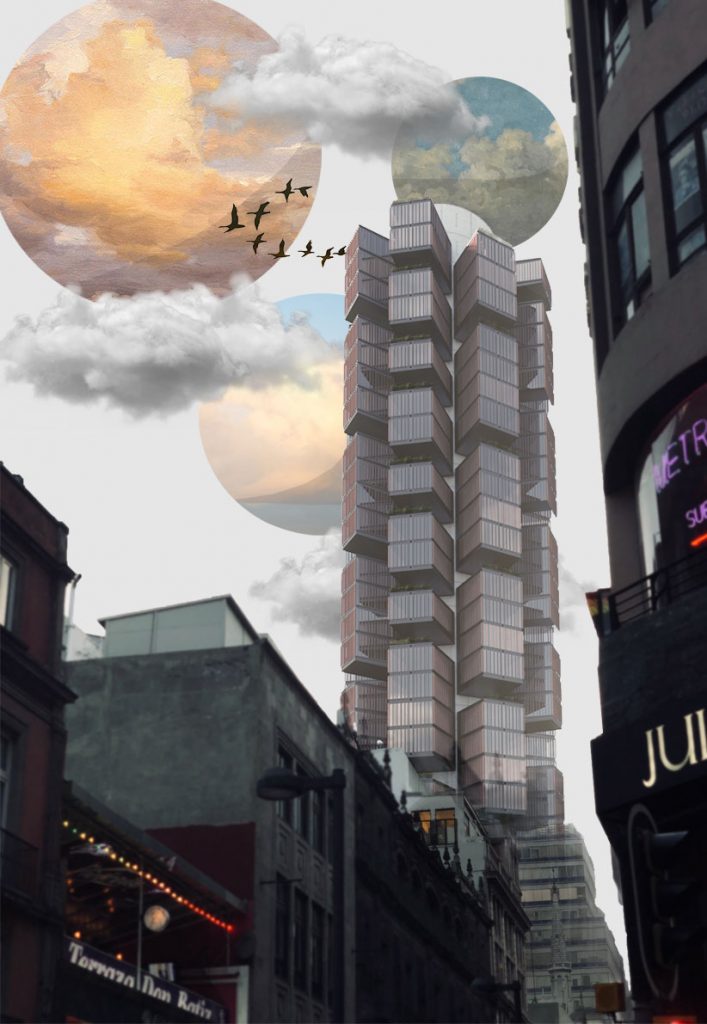
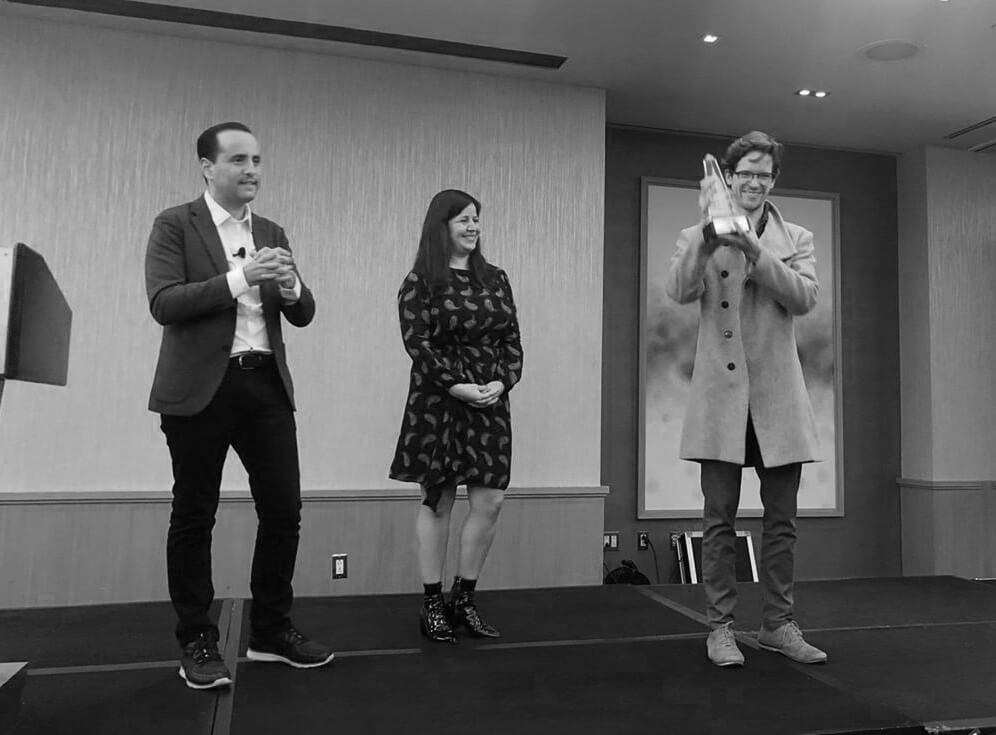
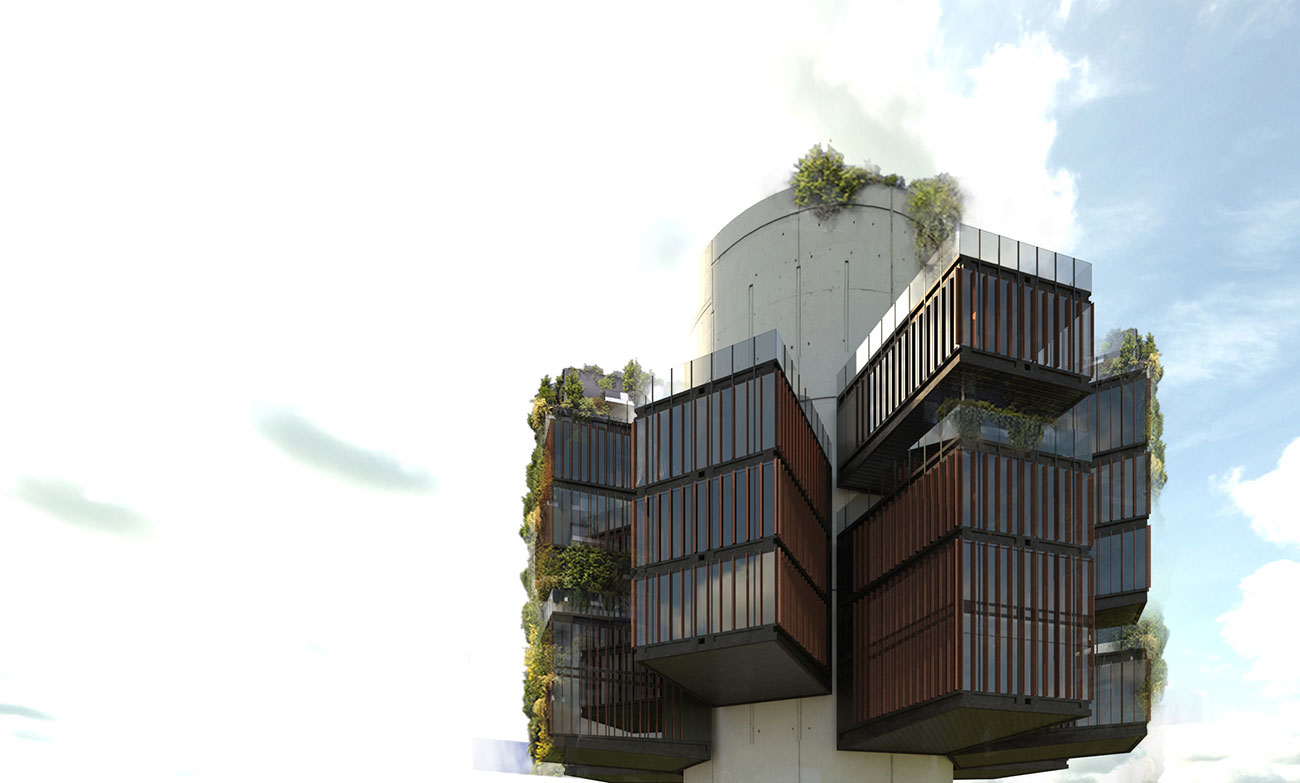

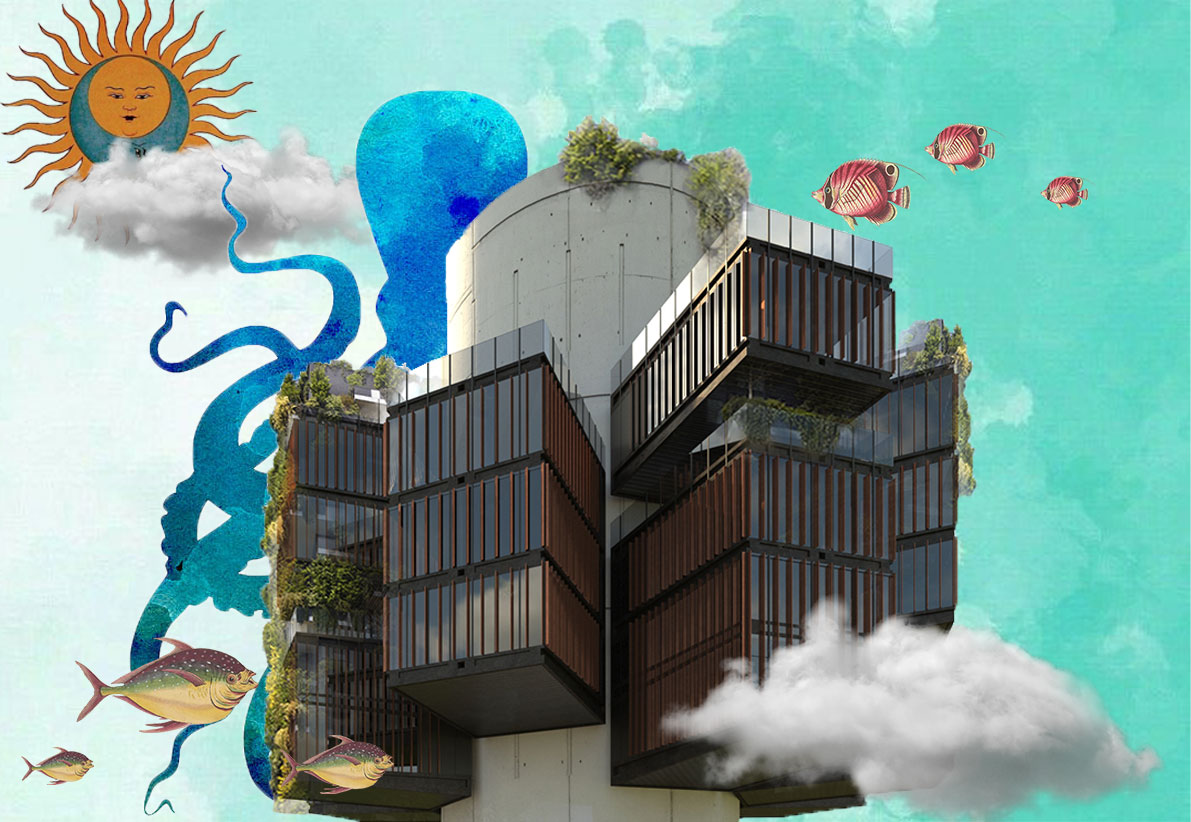
Surveys conducted on es.statista.com shows that since the beginning of the pandemic COVID-19 and considering the period of remote work that was carried out during isolation, 69% of the population prefers to work in a hybrid way in the future.
To foment the adaptive reuse, the Mexico City government published in the Official Gazette the modification to the Guidelines for the Reconversion of Offices to Housing in Mexico City, as a plan of economic reactivation 2022-2024, dedicated to all properties that have been in disuse since March 31, 2020.
Architecture and pleasure for digital nomads
Digital nomads are those people with a flexible job or livelihood, which allows them to reside anywhere according to their wishes and interests. To work they require a computer and internet access point. Geographical and time flexibility allows digital nomads to be traveling permanently while visiting and learning about new cultures and contexts.
According to the survey carried out by es.statista.com, in 2019, in Latin America, Colombia was the country with the highest percentage of people working remotely, with 45% of respondents using this modality, while the percentage in Mexico was 39%. By June 2020 during the pandemic, the percentage for Colombia increased to 71% of those surveyed, and in Mexico, it increased to 72% of those surveyed.
Digital nomads represent a challenge for the real estate sector because they have specific needs: they are constantly looking for attractive temporary locations, generally well-known tourist destinations or charming towns, affordable prices, connectivity, good gastronomy, and the possibility of having memorable experiences. While some travel alone, some travel as a couple or as a family. Therefore, the architecture must have the ability to adapt in a versatile way to these demands.
CAFEÍNA DESIGN’S PROPOSAL
An example of a project in which we as Cafeína Design managed to reconcile these new needs of the real estate market with high-quality architecture is Eden Tulum. In this project, we focused on designing a development that could bring together authentic people in seeking experiences that resonate with each style of life.
This place is designed for a variety of visitors from those who have a nomadic lifestyle and prefer to work from anywhere, to people who love animals and can share their experiences with their pets, the ones who live a healthy lifestyle, or those aware of art and beauty, who celebrate diversity, who appreciate details and who above all value quality over quantity.
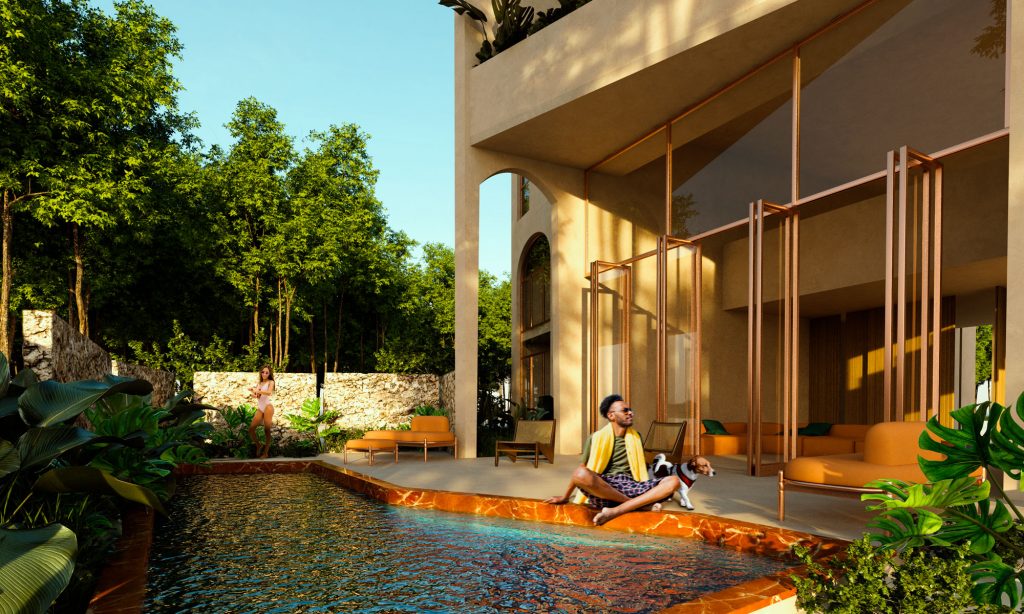
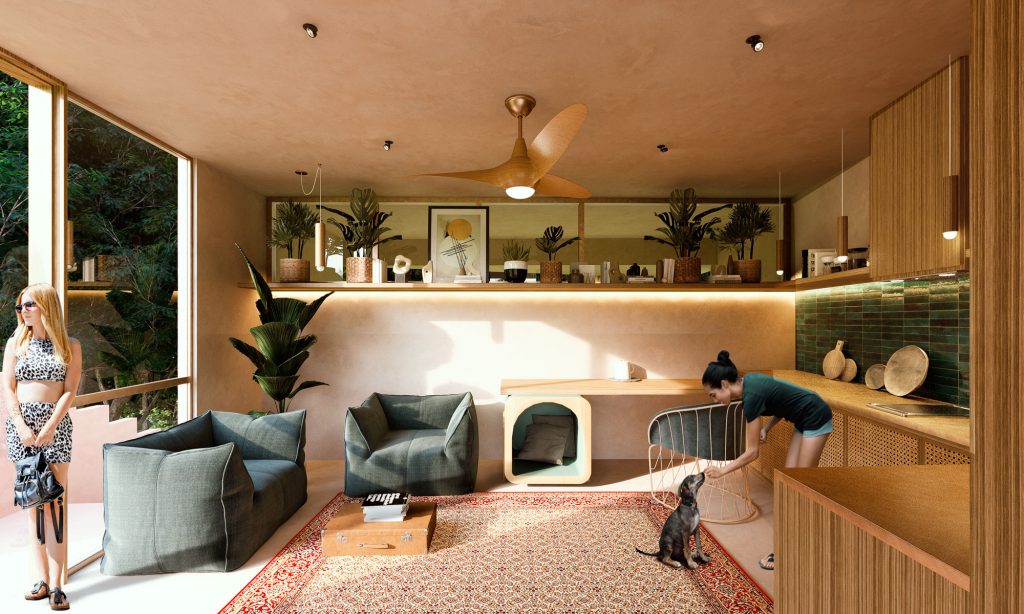
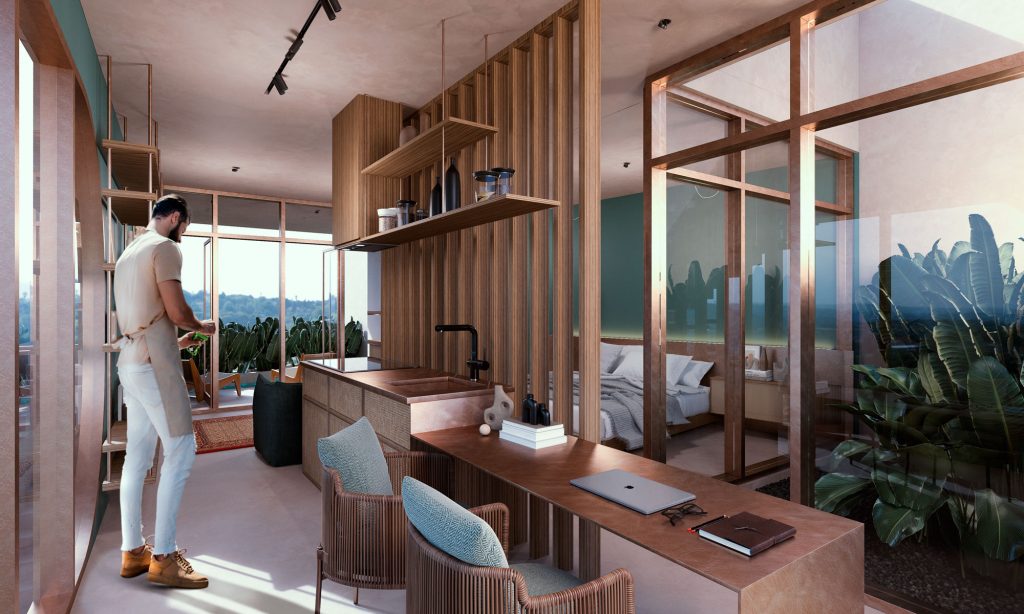
Conclusions
At Cafeína Design, we have the vision, commitment, and ability to innovate in the face of the complexity and dynamics of real estate markets, generating products that did not exist before and walking together with developers to generate value through design. architectural quality, which can be the difference between the success and failure of a real estate product in times of crisis.
Want to learn more about this topic?
